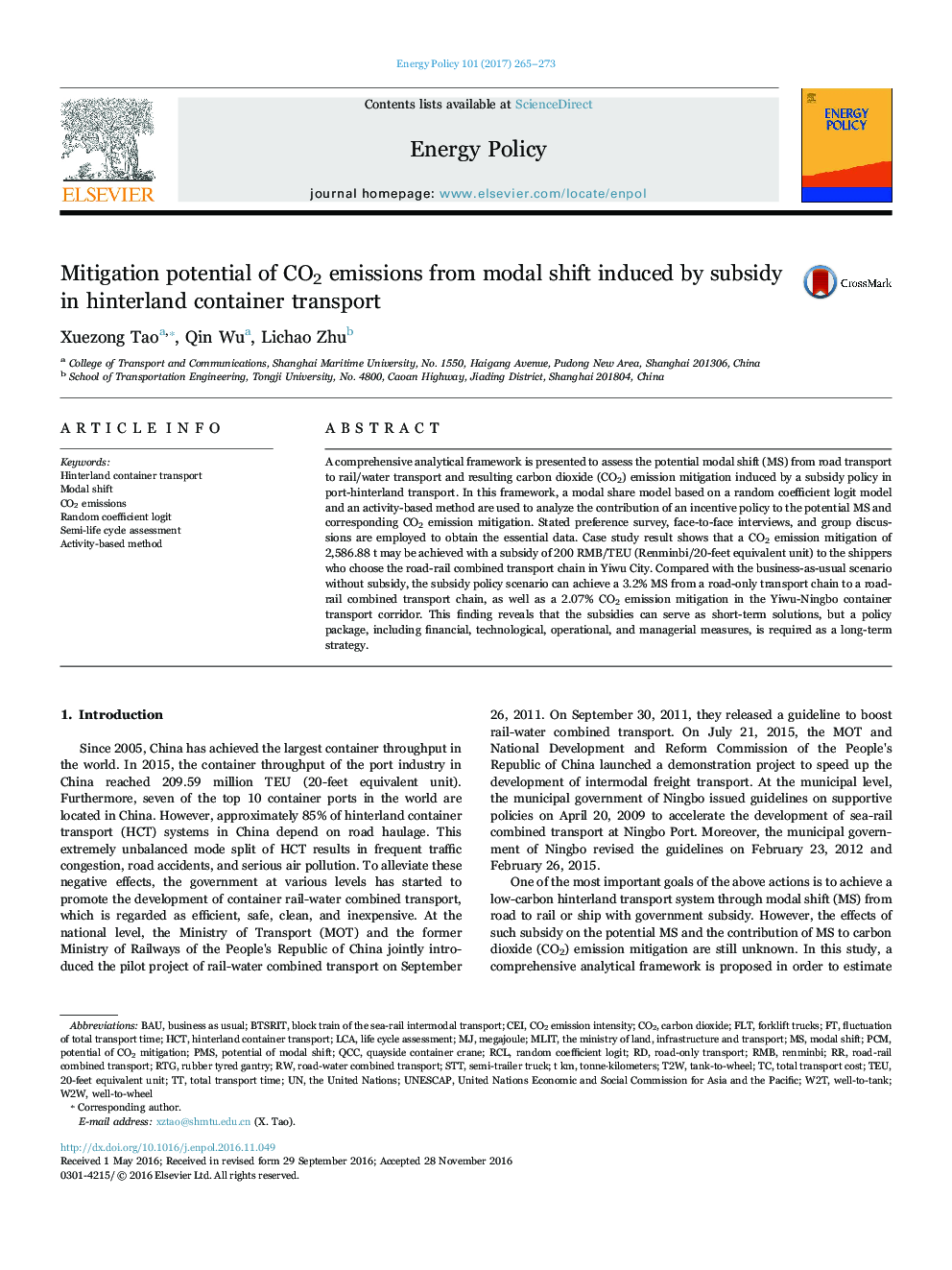| Article ID | Journal | Published Year | Pages | File Type |
|---|---|---|---|---|
| 5105995 | Energy Policy | 2017 | 9 Pages |
Abstract
A comprehensive analytical framework is presented to assess the potential modal shift (MS) from road transport to rail/water transport and resulting carbon dioxide (CO2) emission mitigation induced by a subsidy policy in port-hinterland transport. In this framework, a modal share model based on a random coefficient logit model and an activity-based method are used to analyze the contribution of an incentive policy to the potential MS and corresponding CO2 emission mitigation. Stated preference survey, face-to-face interviews, and group discussions are employed to obtain the essential data. Case study result shows that a CO2 emission mitigation of 2,586.88Â t may be achieved with a subsidy of 200 RMB/TEU (Renminbi/20-feet equivalent unit) to the shippers who choose the road-rail combined transport chain in Yiwu City. Compared with the business-as-usual scenario without subsidy, the subsidy policy scenario can achieve a 3.2% MS from a road-only transport chain to a road-rail combined transport chain, as well as a 2.07% CO2 emission mitigation in the Yiwu-Ningbo container transport corridor. This finding reveals that the subsidies can serve as short-term solutions, but a policy package, including financial, technological, operational, and managerial measures, is required as a long-term strategy.
Keywords
Related Topics
Physical Sciences and Engineering
Energy
Energy Engineering and Power Technology
Authors
Xuezong Tao, Qin Wu, Lichao Zhu,
